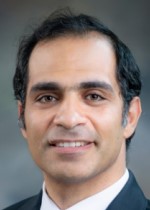
An Introduction to Variational Bayesian Methods and an Application in Determining Components of a Tumor
Habil Zare - Assistant Professor, University of Texas Health Science Center in San Antonio
Sun, 12-Sep-2021 / 10:00 / Link:
https://vc.sharif.edu/ch/math-event
Video Slides 1 Slides 2 Poster
Abstract
Statistical machine learning was developed in the late 20th century as a powerful data analysis approach. Analyzing complex data however often requires complex models with many random variables. Fitting the complex model to the given data is a challenging optimization problem, which leads to computing multivariate integrals to compute the posterior probability. Variational Bayes methods are efficient approaches to estimate the posterior distribution. The simplifying assumption of variational Bayes methods is that the posterior distribution is restricted to belong to a particular family of distributions e.g., Gaussian distributions. In this talk, we give a brief overview of variational Bayes, describe how this simplifying assumption makes the optimization problem tractable, compare it with the related expectation-maximization (EM) algorithm, and present a relatively simple application of EM in cancer research.
Bio
After obtaining his BSc in pure mathematics and MSc in computer science from Sharif University of Technology, Habil Zare went to Canada in 2004 to pursue a PhD. In his PhD thesis, he used the spectral graph theory concepts that he had learned in his MSc to tailor spectral clustering algorithms for analyzing large biological datasets. He used this approach to facilitate the diagnosis of some types of lymphomas, which are blood cancers that develop in the lymphatic system. This achievement as well as scientific interactions with colleagues at the University of British Columbia in Vancouver encouraged him to explore the applications of machine learning in the analysis of biological data as his long-term career goal. Therefore, he accepted a postdoctoral opportunity at the University of Washington in Seattle to learn computational biology from Professor William Noble who is a pioneer in this field. He became an independent investigator in 2014 and established The Oncinfo Lab. His research is focused on cancer and Alzheimer's disease. He is currently affiliated with the Department of Cell Systems and Anatomy as well as The Biggs Institute for Alzheimer's & Neurodegenerative Diseases at the University of Texas Health Science Center in San Antonio. In collaboration with his colleagues and also scientists from other institutes, his lab contributes to several high-impact studies.